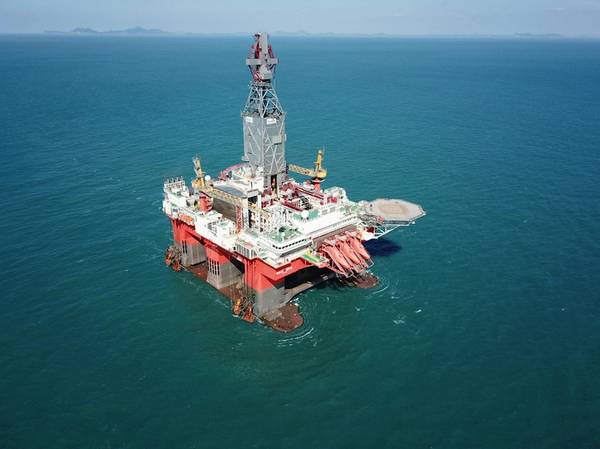
Siemens announced Friday it will supply a lithium-ion battery-based energy storage solution (ESS) to an offshore drilling rig, in a world-first project that aims to reduce cost and minimize environmental impact.
Siemens, drawing off its experience in the electrification of marine assets, will supply its BlueVault solution for installation on Northern Drilling Ltd.’s sixth-generation, ultra-deepwater semi-submersible drilling rig West Mira. The Moss Maritime-designed drilling rig will be the world’s first to operate a low-emission hybrid (diesel-electric) power plant using lithium-ion energy storage.
The solution consists of four converter-battery systems for a total maximum power of six megawatts. The batteries will be charged from the rig’s diesel-electric generators and used for supplying power during peak load times. In addition, they will serve as backup to prevent blackout situations and provide power to the thrusters in the unlikely event of loss of all running machinery.
“The integration of energy storage with the power supply and distribution system of a drilling rig represents an important step toward improving the environmental sustainability of the offshore oil and gas industry,” said Bjørn Einar Brath, Head of Offshore Solutions in Siemens.
“Offshore rigs have highly variable power consumption for drilling and dynamic positioning. By incorporating energy storage, it is possible to reduce the runtime of diesel engines and also keep them operating on an optimized combustion level,” he explained. “This ultimately leads to lower emissions.”
According to Siemens, BlueVault will help reduce the runtime of West Mira’s on-platform diesel engines by an estimated 42 percent, cutting CO2 emissions by 15 percent and NOx emissions by 12 percent.
The rig will be operated by Seadrill Norway Operations Ltd. on behalf of Northern Drilling. Wintershall has contracted the facility for six wells in the North Sea’s Nova Field, approximately 120 kilometers northwest of Bergen. The contract includes options for early commencement starting in Q3 of 2019, as well as follow-on options that, if exercised, would run until Q1 2022.
Siemens said it will continue to work with Seadrill in the coming months to ensure the hybrid power solution meets the performance and reliability requirements of the facility.
The ESS that will be supplied to West Mira is based on field-proven technology installed in more than 60 marine vessels worldwide, including the world’s first electric car ferry, MF Ampere, in Norway, Siemens noted. The manufacturer’s fully robotized and digitalized plant in Norway develops and manufactures energy storage technologies for both marine and offshore oil and gas applications.
“We expect this market to grow significantly, and consequently have invested heavily in the development of safe and reliable ESS solutions by establishing a production facility for battery modules in Trondheim, Norway,” Brath said. “The facility will play an important role in helping Siemens meet the global demand for more efficient drilling operations, with the ultimate goal of reducing the offshore industry’s carbon footprint.”



